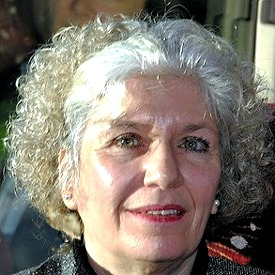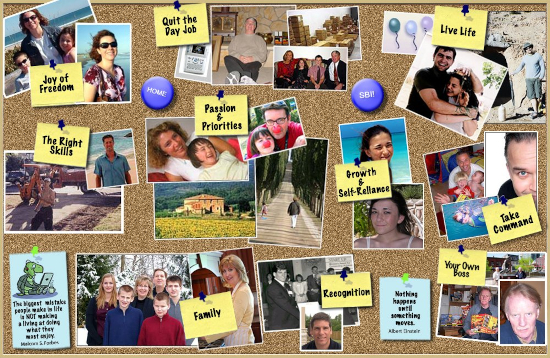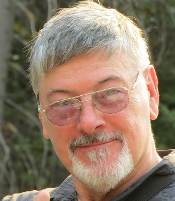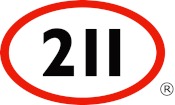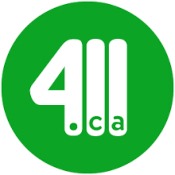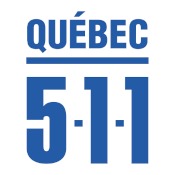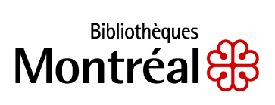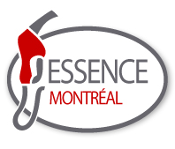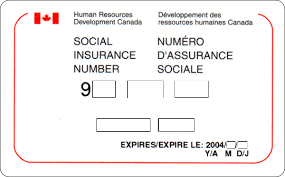Crees of Eeyou Istchee
The Crees of Eeyou Istchee - Eeyou means People and Eeyou Istchee means People's Land. Cree First Nations who went from an extensive trade alliance with the Hudson Bay and who were extorted by Europeans who only wanted to expand their own wealth and their own influence.
Crees who are now divided into eleven groups based on their respective dialect and region. Eleven Cree First Nations and eleven communities who are united through their culture, their traditional values and their common interests and who are now independently administered by each of their respective local governments.
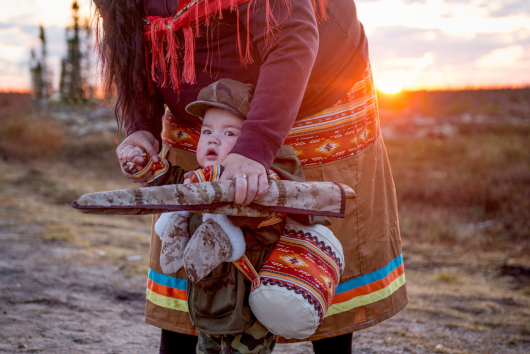 Photo from the Cree Nation and Government
Photo from the Cree Nation and GovernmentCree communities such as
- Whapmagoostui as in Place of Whales,
- Chisasibi as in Great or Big River,
- Wemindji as in Paint Hills or Red Ochre Mountain,
- Eastmain as in Lands east of James Bay,
- Waskaganish as in Little House,
- Nemaska as in Place of Plentiful Fish,
- Waswanipi as in Light on the Water,
- Oujé-Bougoumou as in Place Where People Gather,
- Mistissini as in Big Rock.
- Washaw Sibi - the River that Runs into the Bay
- MoCreebec Eeyoud - we call ourselves Eeyou and our land—Eeyou Istchee
Cree Nations issues such as
- Apatisiiwin skills development*
- Child and family services,
- Commerce and industry,
- Capital works and services,
- Eeyou Eenou police force,
- Environment and remedial works,
- Finance and treasury,
- Human resources,
- Justice and correctional services as well as
- Social and cultural development.
*Apatisiiwin skills in Cree, employment, training and jobs in English.
Eleven (11) Cree Nations and Cree websites, with nine Cree nations (9) being part of the James Bay and Northern Quebec Agreement.
Cree communities and hundreds of "traplines" formally called traditional family hunting and trapping grounds. A long-established territory mostly located in the northern part of the province of Quebec. Those who reside or have resided in Moose Factory still maintain a unique affiliation with the other Eeyou First Nation.
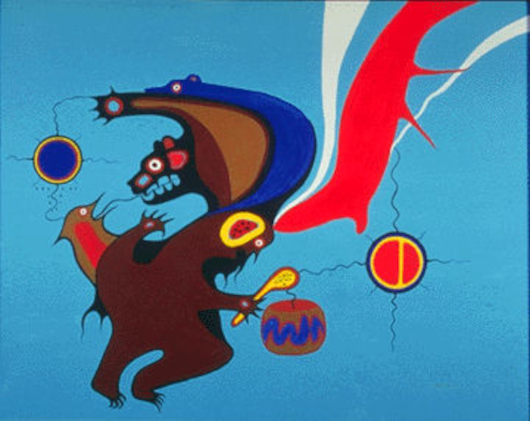 Cree Art - The Canadian Encyclopedia
Cree Art - The Canadian Encyclopedia A Cree Nation and a Cree language that belongs to the Algonquian linguistic and cultural family, the most widely spoken Indigenous language in Canada.
Almost the entire Cree Nation speaks Cree with English being the second language of many. Cree stories that tell about their past, their religion, the presence of a Great Manitou and the belief that all natural objects, animals, plants, trees, rivers, mountains, rocks have souls.
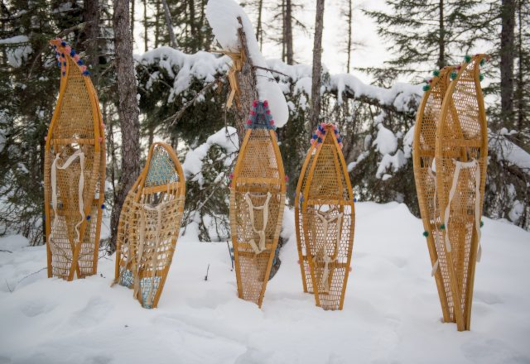 Photo from the Cree Nation and Government
Photo from the Cree Nation and GovernmentCree First Nations - Administration and Government
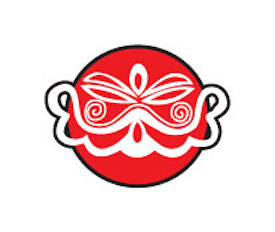
Two distinct legal entities (administration and government) and two Councils where common Cree Nation issues are addressed.
Both have identical membership, identical board of directors and governing structure and both are managed and operated as one organization by the Cree Nation.
Each Cree First Nation is administered independently through its local government and each elected Chief sits on the Board of Directors of the Grand Council of Eeyou Istchee as well as on the Council of the Cree Nation Government.
Montreal Kits - Crees of Eeyou Istchee
Cree Singular - Crees Plural
The Abenakis, Anishinaabeg, Atikamekw, Crees, Huron-Wendats, Innus, Maliseets, Mi'kmaq, Mowhawks, Naskapis First Nations and, the Inuit in Inuit Nunangat, the Arctic regions of Greenland, Canada and Alaska.
Disclaimer Keep in Touch! Montreal Tourism
Privacy Policy Rachel Louise Barry Sitemap
Montreal Kits © All Rights Reserved 2018-2024
The information provided by Montreal Kits is informational only and has no legal value.









